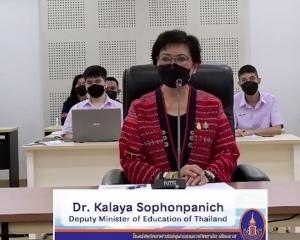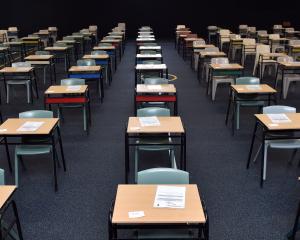Large-scale educational reforms carried out from the "top down" are prone to over-correction. The liberal reforms of the 1920s and 1930s were a reaction against 19th-century utilitarianism.
In historical perspective, we can now see that pioneer New Zealand families were by then outgrowing the widespread limitations in primary education, with its heavy emphasis on fundamentals, and were beginning to aspire to a more liberal secondary and tertiary education.
But veering towards liberalism carried with it a needless departure from fundamentals which we have come to regret, and for which we are still seeking solutions - hence the call for national standards.
But national standards were far from the minds of those reformers who, 21 years ago this year, invented Tomorrow's Schools, an anniversary being marked this weekend at the New Zealand School Trustees Association conference in Christchurch.
Our education system was in deep trouble by the 1980s, and one of the main reasons was that teachers had become expected to apply the disciplines that so many parents had opted out of: to act in loco parentis to the 30% of pupils often seriously affected by solo parentage; and to supply motivation to the many children already programmed by malcontent parents to blame others for their non-achievement.
The education review committee that the Lange Labour government invited Brian Picot to lead produced a wide range of reforms, and the "Picot Report" became the considerably modified framework for Tomorrow's Schools.
In its final form, it was also far less radical than the market-driven proposals by the Treasury, among others, and in his second term prime minister David Lange took it upon himself, as minister - indeed, guardian - of education, to ensure it was implemented.
If Mr Lange had "struck off into the unknown before working out where he wanted to go" - as one of his cabinet colleagues, Michael Bassett, acidly contended, how much truer this was of parents and teachers, for whom Tomorrow's Schools was a system quite untried.
They were to be given autonomous management of schools; education and school boards were abandoned. Given the earlier devastating criticism by the Auditor-general of the waste in education at the time, it was no great surprise that devolution was a consequence of Picot.
For example, it was optimistically hoped school trustees would manage their schools to ensure the buildings were used far more by local communities, perhaps even bringing in rental income. The incentive to save money otherwise being wasted in capital building construction and on over-expensive maintenance was placed in local hands, rather than in a remote bureaucracy.
Trustees found themselves writing charters: terms of reference for the contract between them and their communities about how each community's children should be schooled. This was to ensure education could be delivered with local variations and specialties on the basic national curriculum.
Trustees were faced with directly communicating with their parent community and putting into words their vision of a school and the service and facilities it should provide. This was democracy on a grand scale, monitored by the inspection service now known as the Education Review Office, and carried out in public.
For all its many deficiencies and settling-in problems, the system of Tomorrow's Schools had the benefit of forcing teachers and parents to concentrate on the very specifics of the purpose of a school, providing a better understanding of what education is and should be in contemporary society.
Trustees had to learn the nuts and bolts of education, how schools are kept open, heated, the toilets kept working, how the income is spent - every trustee has had to learn new management skills. The funding paths are much closer now to individual school realities.
There were plenty of fishhooks and unforeseen consequences to overcome and refinements and adjustments to be made. And every board of trustees today will have a horror story or two to relate. But would any parents truly want a return to the system that existed before 1989?
The burden of change fell on the primary sector, and when announced was greeted with considerable enthusiasm. Education was thrust upon an exciting course of change: the challenge to parents was to carry the adventure through if education was to be lively, efficient and relevant.
Twenty-one years on, given some of the original elements of the scheme that have fallen victim to political fancy and political cowardice, the framework of devolution remains. Much can still be improved, at primary and - especially - at secondary level with regard to quality.
Given the habitual provider-capture of the education sector, however, Tomorrow's Schools can still be viewed as a victory for parents, and for their children. The nation as a whole has benefited from the critical self-examination trustees and schools routinely undergo.











